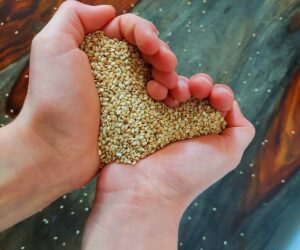If you read my blog ‘The Reason You Can’t Sleep’, you will know the answer is probably stress. But as you’ll know, stress is a unique phenomenon, which is why only analysis of your own stress profile can help effectively.
I will present how you can apply stress-management techniques to suit YOU.
When you think of managing stress, you probably despair and think ‘where can I possibly start?’. Well, the first key step is dedicating 15-30 minutes to yourself and reflect on the origin of your stress, tolerance point and vulnerability. For better clarity, write it all down on a piece of paper and be as specific as possible.
If you have done the above exercise, keep reading. You will learn many strategies you could apply in your life and you can embrace the strategies that will work best for managing the stress that you feel.
1. CONSIDER RESPONSIBILITIES AND DELEGATE TASKS
From your reflection on the task above take the next step. Identify stressors you are responsible for. Then get to know those which other people in your environment (home, work, community, country) are accountable for. Again, write it down, make a table, clearly separate it. Now, focus on those issues that are on your side and prioritise. What is the first, most stressful matter? Concentrating on one task at a time will very likely help you to accomplish much sooner than multitasking and trying to solve many problems at once. One fixed problem will boost your confidence that you are able to cope with the next one from your list.
What about the issues that other people are responsible for? Can you impact their actions? If yes, communicate clearly with them what you want them to do. Be as specific as possible and pick the right person for the for the job. Otherwise you will worry that the task will not be completed well enough.
2. HYDRATION AND NUTRIENTS
It is very easy to get dehydrated, especially in the heat, when we exercise, diet, get an illness, or drink too much caffeinated beverages or alcohol. Symptoms of dehydration can be dry mouth, dizziness, light-headedness, dark urine, inability to concentrate, and confusion. And if you are dehydrated your body will use its energy to compensate the lack of water first, not to manage the stress effectively. Drinking more water is the easiest and quickest strategy you can put into place to cope with your stress better. If you do not like the taste of plain water, add to it some lemon juice, fresh mint leaves, a slice of cucumber or a strawberry.
It is also important to make sure that you are not suffering from any deficiencies in vitamins and minerals. Well-balanced diet and taking supplements will help to improve your health, strengthen immune system, aid metabolism, provide energy, maintain nervous system and facilitate relaxation.
3. MOVE, MOVE, MOVE!
I guess you know exercise is one of the best strategies to help you manage your stress. However, this is also one of the first areas of our life that we miss out during a busy daily schedule, when we are dealing with deadlines or trying to solve a problem. Yet, to be more effective in coping with the stress that comes with the above, you need more energy and focus. A well-working cardiovascular system, greater lung capacity, improved self-image and release of chemicals that are a result of exercise will help you to relax. The best way to achieve them is to is find a physical activity you will enjoy and stick to it. Depending on your own stress profile you might either prefer a higher-impact sport (running, dancing) or something more peaceful (yoga, walking). Maybe if you suffer from stress related to social aspects of life and feeling isolated you could look for places to join team sports (football, tennis). However, this will depend on your level of confidence. On the other hand, if you are experiencing too many stimuli and get overwhelmed by others, you can benefit from a solo kind of sport (equine sports, bicycling). There are so many types of activities to choose from!
4.RELAXATION TECHNIQUES
Yes, our physicality is closely related to stress, but also our mind and spirit can be affected by going through the life issues that require stressful adjustments. If you are experiencing excessive worrying, feelings of anxiety, sadness, being overwhelmed, irritability, unrealistic expectations or despair, you could benefit from learning and implementing some relaxation techniques that will help you build a stress-proof mind. Again, there are so many various ways to relax, that I believe you can find a one or two that will become beneficial to your individual life circumstances. Just to name some of them it could be deep breathing (with a particular focus on exhalation), mental body scanning, praying, a body massage, meditation, reflection walk (in the nature if possible) that can also be a part of your exercise plan, listening to your favourite music or visualisation.
5. HABIT RESHAPING
The majority of our functioning is based on habits, both good and bad. These habits (e.g. drinking too much alcohol, staying up too late, overeating, spending money on items you do not need) can directly or indirectly affect our bodies and emotional and mental well-being. However, regardless how helpless you feel about your habits, let me assure you that they can be changed. But again, this will require your commitment. Your first step would be to identify if your habit does not really benefit you and why. Knowing what you would like to change and why, set your very specific goal and try to concentrate on one habit at a time. On your way to reshaping your habits, you might find it useful to:
- practice the pause (when you are about to fall into the habit again, stop for a moment and think what will it give you, how will you feel),
- not having habit triggers around you (e.g. do not buy or have sweets near you),
- replacing your habit with another ‘treat’ (e.g. instead of switching TV on soon after you come back home, listen to a piece of relaxing music, drink some herbal tea, meditate etc.),
- turn your habits into your speciality (e.g. you can become a connoisseur of food and focus on quality, not quantity).
- find a person to let her/him know about your new goal and who will keep you motivated if you feel like quitting.
Remember that the key to habit change is consistency and time. Be kind to yourself if some of them require more effort. However, if your habit is also an addiction, you might need more specialist support such as your health care provider or a counsellor.
6. ATTITUDE ADJUSTMENT
Have you ever thought about your attitude and the way you generally see things? Do you tend to see the light or a bright side of life first? Negative thinking is a habit that might be based on your experiences. But if you decide to do some work on it, you can change it. Journaling is one way that will support you during the process. In your journal write about incidents and moments that you are feeling negative about. Keep writing and come back to it later. Can you see a pattern? Or maybe after a few days you will see these problems more objectively. Consistent journaling practice will help you see the triggers of your attitude. It is very likely you will start catching your pessimistic thoughts and stop the previous habitual process.
It is also proven that laughter is a great way to relieve our stress. Therefore, look after your sense of humour. A good joke can often prevent the situation from intensifying.
7. GRATITUDE JOURNALING
You can also use journaling in a different way, concentrating on the positives in your life. I believe there are a least a few things you can be grateful for. To put this strategy in place, in your notebook record 3-5 people, events, or things you feel blessed for. Practice this a few times a week after waking up in the morning. Go a bit deeper and think why you appreciate them. This short exercise will boost your happiness afterwards and help you to become more resilient to daily stress.
8. CREATIVITY THERAPY
Painting, drawing, knitting, flower arranging, dancing, playing the instrument, writing stories or poetry are only a few examples of creativity. When you become deeply involved in your invention, you will achieve the intense focus, similar to the state you can achieve through a meditation. Your body and your overworked brain will start to relax, and let go. At the same time, your creative side might come up with a solution you have been looking for. So, set aside 30 -60 minutes each day and without any judgment, start creating. After a month you might even observe that by honouring your time and your work your self-esteem will have increased.
The above list of stress management techniques is not exhaustive. However, I hope that depending on your stress profile you will find a one or two that fit your individual circumstances and will assist you to build a stress-proof body, mind and spirit.
One of the sources of this article was a book of Eve Adamson ‘The Everything. Stress Management Book’, so If you want to enhance your knowledge about stress, recognise your sensitive areas and learn more in depth strategies, I can definitely recommend it.
Please use the Comment Box below to share methods that you have been applying in your life to cope with daily tensions.
References
1. Adamson, E. (2002). The Everything. Stress Management Book. Practical Ways to Relax, Be Healthy and Maintain Your Sanity. Adams Media Corporation.





Pingback: Stress - The Reason You Can’t Sleep - Sleep Shield - Alicja Finc
Pingback: Thankfulness and snoozing: does being grateful mean a better sleep? - Sleep Shield - Alicja Finc